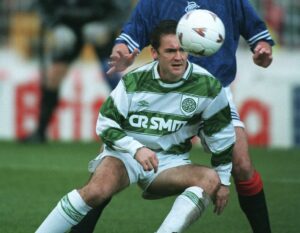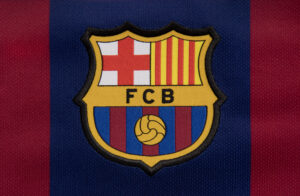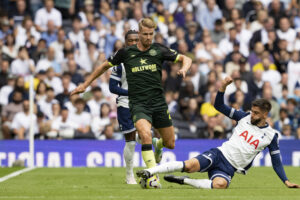As the 2016-17 season in the Premier League moves towards the final stretch, the battle for one of the spots that will secure Champions League football next season is getting spicy. Therefore, any game where two candidates for top-four placement meet is almost worth six points, rather than just three, because one team pocketing the three points also prevents the other from doing so.
Manchester City vs. Liverpool: A Tactical Review
Another feature of such clashes is a careful approach, with avoiding defeat the primary goal, but not when it’s Manchester City under Pep Guardiola welcoming Jurgen Klopp’s Liverpool. Both teams are known for their focus on attack rather than defence, and this game was no exception to the rule.
After recent Champions League failure, Manchester City were keen to bounce back with a victory over Liverpool, especially since they lost 1-0 at Anfield in December. But when making predictions about a game, people often make the mistake of taking only one team, as a rule the one that they deem stronger, into considerations. In this case it would of course have been a folly not to keep in mind Liverpool’s record against the top-six teams in the league.
Initial tactics
Apart from their game always being attack-minded, both Klopp and Guardiola are managers that will rarely and reluctantly change their approach, no matter who the opposition is. With that in mind it was to be expected that the home team would come out in a 4-1-4-1 formation, while the visitors were set to meet them head-on arranged in a 4-3-3. Given the poor form of Claudio Bravo and absence of the likes of Ilkay Gundogan and Gabriel Jesus for City, and that of Jordan Henderson for Liverpool, as well as the fresh return from injury of Dejan Lovren, the managers opted for the following personnel to carry out their plans.

As soon as the game started, there were several indications of potential problems for Liverpool. The most obvious one was the pace of former Liverpool winger Raheem Sterling against the former City utility man James Milner. Most of the attacking activity from the home team was conducted on the right, and quite apart from being constantly booed by the City supporters, Milner was having a hard day at the office. Nevertheless, his vast experience and Sterling’s often poor decision-making were of some help in dealing with the situation.
The other problem was that the high-pressing of Adam Lallana occasionally left space for Yaya Toure to move a bit forward if Liverpool’s initial press was broken through, and the Ivorian would team up with Kevin De Bruyne and David Silva to cause trouble for Emre Can and Georginio Wijnaldum.
Be that as it may, both Wijnaldum and Can were on the top of their game as usual against such opponents, while Liverpool’s pressing up front became gradually more successful. Lallana and Firmino made some very smart interceptions time and again, not letting Stones and Otamendi play out the back as Guardiola asks them to, and City were slowly pushed back.
This balance was what we were seeing throughout the first 45 minutes, but the score remained goal-less as numerous chances were being wasted on both sides. Silva and Philippe Coutinho both shot wide from promising situations, Sadio Mane’s run was thwarted by Otamendi in the last moment, Firmino’s shot was saved by Caballero, Joel Matip sent a header just wide, and finally Sterling and Fernandinho failed to get on the end of a sharp low cross by Sane from the right side, in front of the gaping Liverpool goal.
And the managers only watched and waited. It was obvious that both teams were causing much trouble for one another, and until something tangible happened, they found either no reason or no proper means to tamper with the game.
But in the second half, Liverpool were all over the place, pressing high, winning the ball everywhere, pushing forward with all their might. And then it happened.
City under Guardiola play a high defensive line, and one of the most important things when playing a high defensive line is – it has to be a line, straight and unbroken, and the players forming it must move in unison, otherwise gaping holes immediately appear. It was just one such moment that cost City dearly, and the lack of concentration from Gael Clichy just for a second or two was the trigger.
The French full-back moved a bit forward, away from his penalty area, while the others were making a line right in front of it. Roberto Firmino is by no means a classic centre-forward, but he’s extremely intelligent and persistent, and this was exactly the kind of defensive mistake he thrives on, the moment he had been waiting for.
Seeing Clichy break the line and Emre Can having the ball some 35 yards out, the Brazilian moved out of his central position to the right and occupied the space Clichy had just vacated. Can produced a brilliant pass, and as soon as it left his boot, Clichy was aware of his mistake – too late, as he even slipped trying to recover, lost a valuable second, and not being willing to let others try and correct his mistake, he brought Firmino down. Penalty. 0-1.
What it all came down to up to that point was who would blink first. And City did. What happened in the next 15 minutes or so was due to the sheer psychological advantage of the visitors. Like a boxer that will attack with all his strength once he has penetrated his opponent’s guard, Liverpool kept swinging and City were on the ropes.
The change
Perhaps Guardiola waited for too long to change something and revitalise his team, but the damage was somehow contained to that one goal, and then he made his move.
One of the most obvious things the Spaniard must have noticed during Liverpool’s dominance period was how heavy-legged Yaya Toure had become. He was constantly challenged and beaten to a pulp by any Liverpool midfielder that came at him, not being able to turn or run, and in a 4-1-4-1 system the most important thing for that lone deep-lying midfielder is mobility.
Therefore, in order to shake his team up a bit, Guardiola made one substitution that seemed tactical on paper, but it was actually a very straightforward one. He introduced Bacary Sagna for Toure, but Sagna took up his usual right-back duties, while Fernadinho moved to his preferred position deep in central midfield. It seemed the substitution gave immediate results as the home team started playing notably better, but another switch by the City manager was more of a reason for that sudden change of fortunes.
Kevin De Bruyne was now playing out wide on the right side, while Raheem Sterling had moved in, closer to David Silva. This switch was at the core of what happened in the 69th minute, as the Belgian created just a little bit of space for himself on the wing and sent in a low cross into the six-yard box, where it just escaped Klavan’s attempt of an interception and reached the ever-hungry Sergio Aguero. 1-1.
The next fifteen minutes expectedly passed in the game being completely dominated by the hosts, and now it was Liverpool who found themselves on the ropes. Chances came and went, and Klopp’s decision to withdraw the out-of-form Philippe Coutinho after 73 minutes did very little (if anything) to turn the tide.
But soon, just like Liverpool had some 15 minutes after the opening goal, it was now City’s turn to start running out of steam, and the visitors, able to catch some breath, started looking dangerous again.
Sensing that the time for all-out attack had gone, Guardiola made another substitution and this time it was tactical. He replaced Leroy Sane with Fernando, and played now with two holding midfielders in order not to let the game slip out of control.
Jurgen Klopp, on the other hand, kept faith with his plan until a minute from time, and was almost rewarded for his patience when Wijnaldum employed Firmino with a fantastic lobbed pass and the Brazilian performed an extremely skilful flying back-heel pass towards Lallana, but the England Player of the Year embarrassed himself thoroughly with a mis-kick six yards in front of the gaping goal.
But in the 89th minute, he sensed it was time he made sure there wouldn’t be any unpleasant last-gasp surprises and replaced Firmino with Lucas Leiva.
This game was certainly a spectacle to watch, and both managers have shown great tactical abilities, and the reason for their huge mutual respect, originating from the time when they were fierce rivals in the Bundesliga, was clear to see.
On the other hand, the number of missed chances, misplaced passes and defensive misjudgements by both sets of players was a bit alarming, and there is very little doubt that the two managers will be examining what happened there.
The point-splitting result leaves Manchester City and Liverpool as they were regarding their strife for a top-four spot, but Manchester United have now moved close and it will be very interesting to see what happens between now and the end of the season. Whatever happens, the two managers in this game have justified their reputation as those nursing attacking football, and the fans of both clubs, as well as the neutrals, will have enjoyed what they were watching for 90 minutes at the Etihad Stadium.
Main Photo:






